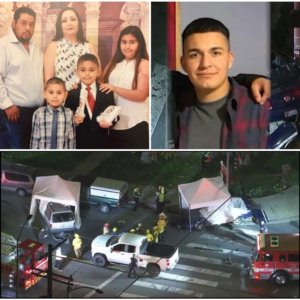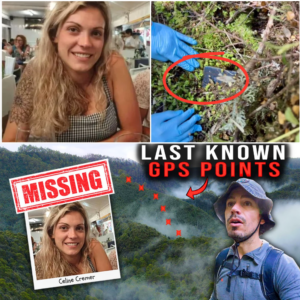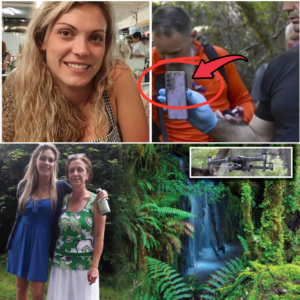The sun hung low over the sleepy suburbs of Ocala, casting long shadows across Silver Road, a quiet artery in Marion County’s patchwork of ranch-style homes and sun-faded lawns. It was the kind of neighborhood where front porches hosted lemonade stands and backyard barbecues, where kids’ laughter echoed like a summer soundtrack. But on June 2, 2023, that harmony shattered with a single gunshot—a .380-caliber round that pierced a locked wooden door and claimed the life of Ajike “AJ” Shantrell Owens, a 35-year-old Black mother of four whose only “crime” was demanding answers for her children’s safety. The woman behind the trigger? Susan Marie Lorincz, her 58-year-old white neighbor, who barricaded herself inside and later proclaimed to detectives, “I’m like, the perfect neighbor.”
Two years later, that chilling self-assessment forms the ironic backbone of Netflix’s riveting new documentary, The Perfect Neighbor, directed by award-winning filmmaker Geeta Gandbhir and executive produced by the likes of Soledad O’Brien and Sam Pollard. Premiering on October 17, 2025, after an Oscar-qualifying theatrical run at Sundance, the 90-minute film doesn’t just recount a tragedy; it dissects it through a verité lens of raw, unfiltered police bodycam footage, frantic 911 calls, and haunting detective interrogations. Composed almost entirely of these visceral artifacts, the doc transforms a local horror into a national indictment—of unchecked racism, weaponized fear, and Florida’s infamous “Stand Your Ground” law, the very statute born in Ocala that Lorincz twisted to her defense.
Viewers are plunged into the heart of the chaos from the opening frames: grainy bodycam clips of deputies swarming the scene, Owens’ crumpled body on Lorincz’s doorstep, her 9-year-old son Israel “Izzy” frozen in shock beside her. “Mommy! Mommy!” his wail pierces the screen, a sound that lingers like a scar. As Gandbhir notes in the film’s press notes, “This is one of those films we wish we didn’t have to make.” Yet, by centering Owens—not as a victim, but as a fierce protector—The Perfect Neighbor reclaims her story from the headlines, forcing audiences to confront the human cost of neighborly malice. It’s a gut-wrenching watch that has rocketed to Netflix’s Top 10, sparking renewed outrage and calls for Stand Your Ground reform. But to grasp its explosive impact, one must rewind to the simmering tensions that turned a vacant lot into a powder keg.
Ocala, the “Horse Capital of the World,” nestles in north-central Florida like a hidden gem—rolling pastures dotted with thoroughbred farms, a Main Street lined with Victorian charm, and a population of 65,000 that prides itself on Southern hospitality. Yet beneath the idyllic veneer lies a history laced with division. It’s here, in 2005, that Florida’s Stand Your Ground law was first codified, inspired by the killing of a white woman by unarmed Black teenagers—a statute that removes the duty to retreat before using deadly force if one feels threatened. Critics, including the NAACP, decry it as a “license to kill,” disproportionately shielding white assailants in confrontations with people of color. Ocala’s underbelly, too, whispers of racial fractures: from the 2015 shooting of Black teen Christopher “CJ” Hampton by a white homeowner, to ongoing debates over Confederate monuments in the town square.
Into this fraught landscape moved Ajike Owens in the early 2010s, a single mother whose radiant energy lit up the block like morning sun. Born in Atlanta but raised in Ocala’s Marion Oaks subdivision, AJ was the epitome of devoted parenthood. At 35, she juggled shifts as a McDonald’s manager with the chaos of raising four children: sons Isaac (17 at the time), Israel “Izzy” (9), Titus (then 5), and daughter Afrika (3). Friends and family paint her as a whirlwind of warmth—a woman who whipped up family dinners of smothered pork chops and collard greens each night, volunteered in her kids’ classrooms at Madison Street Academy, and never missed a soccer practice or ballet recital. “AJ was the glue,” her mother, Pamela Dias, recalls in the documentary, her voice cracking over archival home videos of AJ braiding Afrika’s hair while quizzing Isaac on algebra. “She’d drop everything if a neighbor needed a ride or a prayer. That’s who she was—fierce love in motion.”
AJ’s home on Silver Road was a haven of laughter and lesson: driveway basketball games that spilled into the street, impromptu picnics on the grass, and bedtime stories laced with life advice. “She taught us to stand up, not stand down,” Isaac shares in The Perfect Neighbor, his teenage frame hunched with grief during a post-verdict interview. But the vacant lot next door—a weedy patch of public land owned by Marion County—served as the neighborhood’s unofficial playground. Kids from mixed-race families (Black, white, Hispanic) kicked soccer balls, chased frisbees, and built forts there, their joy a symphony of whoops and giggles. For AJ, it was sacred ground, a space where her children could breathe free from the world’s weights.
Enter Susan Lorincz, a 58-year-old retiree whose arrival in 2020 upended that peace like a storm cloud over a picnic. Originally from upstate New York, Lorincz had relocated to Ocala with her husband, Albert, seeking the Florida dream of golf carts and golden sunsets. But what neighbors saw as a reclusive eccentric, the documentary reveals as a powder keg of paranoia and prejudice. Bodycam footage from fall 2022 captures her first eruptions: frantic 911 calls decrying “hordes of feral children” trespassing on her pristine lawn, leaving “trash and destruction” in their wake. “They’re screaming obscenities! They’re threats!” she rants to a deputy, her voice shrill as she gestures wildly at the empty field. In truth, the lot was county property, but Lorincz patrolled its edges like a sentinel, armed with a broom to “sweep away the vermin.”
Her complaints escalated into obsession. Over 14 months, Lorincz flooded the Marion County Sheriff’s Office with over 100 calls—sometimes 10 a day—accusing the children of everything from vandalism to “gang activity.” Ring camera clips in the doc show her lurking behind curtains, muttering slurs under her breath: “Little slaves running wild,” she hisses at one point, a phrase she later dismisses to detectives as a “slip.” The kids, a diverse crew aged 6 to 12, bore the brunt: AJ’s boys, Izzy and Titus, among them. “She’d yell at us for breathing too loud,” Izzy recounts in the film, his wide eyes haunted by memory. Neighbors whispered of her hoarding—guns, ammunition, even a crossbow cluttering her garage—and her husband’s quiet pleas for calm, captured in a tense family argument on tape: “Susan, they’re just kids. Let it go.”
AJ tried diplomacy at first. In early 2023, she approached Lorincz with a plate of homemade cookies, a neighborly olive branch. “Ma’am, the field’s for everyone. Let’s keep peace for the babies,” she offered, according to witness statements. Lorincz’s response? A slammed door and a fresh 911 call branding AJ a “troublemaker.” Undeterred, AJ rallied the block: group chats buzzed with tips on avoiding Lorincz’s wrath, playdates shifted to backyards. But the harassment intensified. Lorincz escalated to projectiles—hurling an iPad at Izzy in May 2023, smashing his roller skates weeks later. “She said, ‘Go get your mama, see if I care!'” Izzy tells deputies in gut-wrenching bodycam footage, his small hands trembling as he clutches the broken toy.
June 2, 2023, dawned muggy and ordinary. AJ, fresh off a morning shift, was prepping lunch—peanut butter sandwiches for the crew—when Izzy burst through the door, tears streaming. “Mom! She threw my tablet! And skates! She’s crazy!” The 9-year-old’s plea ignited AJ’s maternal fire. Unarmed, keys in pocket, she marched the 200 yards to Lorincz’s bungalow, Izzy trailing protectively. What unfolded next is a masterclass in de-escalation gone deadly, pieced together in The Perfect Neighbor through timestamped Ring footage, neighbor cell videos, and Lorincz’s own 911 audio.
AJ pounds on the door: “Come out here and face me! You wanna throw stuff at kids? Try me!” Her voice, raw with fury but measured, demands accountability—not violence. Inside, Lorincz—gun in hand, heart pounding—dials 911 twice in minutes. “She’s breaking in! Threatening to kill me! Send help!” she screams, barricading herself as AJ’s knocks echo like thunder. But the footage tells a different tale: AJ stands feet away, fists clenched but empty, never touching the knob. Izzy cowers nearby, whispering, “Mom, let’s go.” Lorincz, peering through peephole, later admits to researching self-defense laws that morning. “I was scared,” she tells detectives, but her tone wavers—less victim, more vigilante.
Then, the shot. A muffled crack rips through the audio, the bullet exploding through the door’s lower panel. It strikes AJ in the chest, severing her aorta; she collapses in a pool of blood, gasping, “Izzy… run.” The boy screams for help, neighbors spilling out like ants from a hill—phones dialing, hands pressing futilely on the wound. Deputies arrive in under four minutes, bodycams capturing the pandemonium: AJ’s pulse fading, Lorincz’s defiant emergence with hands raised, gun on the kitchen table. “She was gonna murder me!” Lorincz insists, but her eyes dart, timeline fracturing under questioning. “I didn’t know the kid was there,” she mutters, a chilling admission that hangs heavy in the doc.
Paramedics pronounce AJ dead at the scene, her final breaths a mother’s unfulfilled vow. Back home, Pamela Dias fields the call from a chaplain: “Ma’am, your daughter’s gone.” Bodycam shows her crumpling, a howl of “Why? Oh God, why?” that reduces viewers to sobs. Isaac, Titus, and Afrika are shuttled to relatives, their world imploding. “She was our everything,” Titus whispers in the film, clutching a teddy bear soaked with tears. The community, stunned, erects a memorial on the lot—balloons, candles, AJ’s favorite sunflowers—while national media descends, framing it as “neighbor vs. neighbor” until AJ’s family pushes back: “This was protection turned predator.”
Lorincz’s arrest didn’t come swift. For four days, deputies invoked Stand Your Ground, poring over her claims of imminent peril. Sheriff Billy Woods faced backlash—”Why no cuffs?” protesters chanted outside the station—but on June 7, charges dropped: manslaughter with a firearm, plus assault for endangering Izzy. “Rushing arrests isn’t always right,” Woods explained in a video update, but the doc exposes the delay’s toll: Lorincz free, AJ’s kids grieving without justice. Her interrogation footage is the film’s dark heart—Lorincz, disheveled in a paper gown, spinning tales of terror while detectives dismantle them. “You called yourself the perfect neighbor?” one probes. “Yes! I am!” she snaps, before crumbling: “I just… panicked.” Admitting the slur—”It could’ve slipped”—and her gun research, she begs, “Kill me. I don’t care.” It’s a portrait of unraveling, her “fear” laced with entitlement.
The trial, unfolding in August 2024 at Marion County Courthouse, became a spectacle of stark contrasts. Prosecutors, led by Assistant State Attorney Adam Moskowitz, painted Lorincz as a “bully with a badge of bigotry,” replaying her 100+ calls as evidence of manufactured menace. “AJ was a mom protecting her babies. Susan was a neighbor terrorizing them,” he thundered in opening arguments. Defense attorney Dudley Bryant countered with Stand Your Ground gospel: “Reasonable fear in her castle— that’s the law.” But cracks showed—Lorincz’s refusal to testify, her history of complaints against other minorities (a Black landscaper, Hispanic teens). Witnesses, including a teary-eyed neighbor, described her as “unhinged,” hurling epithets from her porch.
The jury—seven women, five men, diverse in age and race—deliberated under two hours. On August 16, 2024, the verdict: guilty of manslaughter. Gasps rippled through the gallery as the foreman intoned, “Guilty.” AJ’s family erupted in sobs and shouts—”Thank you, Jesus!”—while Lorincz sat stone-faced, her “perfect” facade fractured. Sentencing followed on November 25, before Judge Robert Hodges, who eviscerated her claim: “This was unnecessary, born of anger, not fear. You escalated a dispute into death.” Lorincz, now 60, mustered a scripted apology: “I’m so sorry I took AJ’s life. I never intended… I was confused.” Hodges handed down 25 years—the maximum—crediting her clean record but slamming her “profound sadness” as insincere. “Your decisions were not reasonable,” he echoed the detectives. Lorincz, eligible for release in April 2028 with good behavior, now resides at Lowell Correctional Institution, Florida’s notorious women’s prison rife with abuse scandals.
The Perfect Neighbor doesn’t end with the gavel. It lingers on the ripples, interviewing AJ’s children two years on: Isaac, 19, a college freshman majoring in criminal justice “to fight for moms like mine”; Izzy, 11, sketching superheroes in therapy; Titus and Afrika, shielded but scarred, thriving in Dias’s Atlanta home. “We miss her hugs, her songs,” Afrika lisps in a heart-tug moment. Dias, a stoic grandmother turned guardian, shares funeral footage: Rev. Al Sharpton’s eulogy thundering, “AJ taught you to stand tall—don’t let bullies break your spirit!” The doc spotlights civil rights attorney Ben Crump, who filed a wrongful death suit against Lorincz and Marion County, alleging negligent policing. “This wasn’t self-defense; it was systemic bias,” Crump asserts, footage showing protests where Black Lives Matter activists clashed with Second Amendment die-hards.
Gandbhir’s vision elevates the film beyond true-crime tropes. “We centered AJ’s joy,” she told Los Angeles Times, weaving in home movies of her dancing to Beyoncé with the kids, her laugh a defiant melody. Executive producer Takema Robinson, AJ’s cousin and a social justice activist, drove the urgency: “This family friend deserved the spotlight, not the shadow.” The result? A Sundance sensation with standing ovations, now fueling legislative fire. Florida Rep. Anna Eskamani cites it in bills to mandate de-escalation training for chronic 911 abusers, while national groups like Everytown push federal Stand Your Ground audits.
Yet for Ocala’s Silver Road, healing is halting. The lot, once playground, now sits fenced and forlorn, a plaque reading “AJ’s Field of Dreams” its lone bloom. Neighbors like Maria Gonzalez, who testified against Lorincz, host annual barbecues in AJ’s honor—grills sizzling with ribs, kids chasing fireflies under string lights. “She made us better,” Gonzalez says, eyes misty. Dias visits monthly, scattering petals and whispering, “Rise, baby girl.” The kids? They’ve channeled grief into grit: a scholarship fund in AJ’s name aids single moms, raising $75,000 since launch.
Lorincz’s legacy? A cautionary echo. Inmates at Lowell whisper of her isolation—letters from Albert dwindling, appeals pending. But her “perfect neighbor” delusion endures in the doc’s coda: a final 911 clip, pre-shooting, where she vows, “I’ll handle this my way.” Handled it she did—with a bullet that stole a mother, scarred a community, and ignited a reckoning.
The Perfect Neighbor isn’t entertainment; it’s a mirror, reflecting America’s fault lines. As Gandbhir poses in the end credits: “What if fear had a face? Would we still arm it?” In AJ Owens’ name, the question burns brighter than ever—a call to disarm hate, one block at a time. Watch it, weep it, then act: because perfect neighbors don’t pull triggers. They build bridges.



